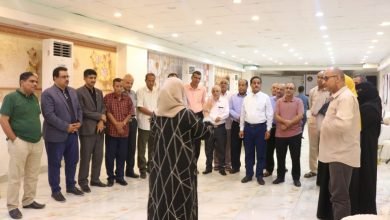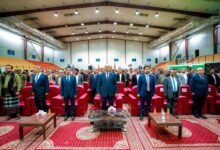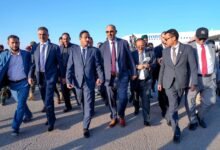South Arabia
In a Special Release to SMA News, Chairman of MADAR Center for Studies Explains Cause Behind Yemeni Crisis
[su_label type=”info”]SMA News – Exclusive [/su_label][su_spacer size=”10″] Dr. Fadl Al-Rubaiy, chairman of MADAR Center for Studies, indicated that the Yemeni internal crisis stems from “sociological aspects of repetitive conflicts in Yemen”.
In a special release to SMA News, Dr. Al-Rubaiy indicated that repeated conflicts in Yemen are related to its socio-political dimension represented in conflicts among regimen wings as these conflicts are affected by tribal and authority factors. This le to the corruption of national practices driving them away from achieving citizenship and sense of belonging. Political power played a major role in this issue through financial support and possession of public offices and interests in favor of specific political bodies, regions and persons while denying others these rights.
“The state fail to create a confident atmosphere for the society, based on social justice and supporting citizens’ rights. For 25 years the state failed to introduce itself as a successful patriotic unionist experience on which the society can rely on. The state didn’t achieve social union that can include social, territorial, tribal, sectarian and local diversity” he added.
In an indication to the cause, Dr. Al-Rubaiy said: “This is because the state was not strong, mature and capable of fulfilling social development requirements. The governing elites possess all power and enslave the people inside, while outside they subdue to foreign powers and favor specific sectors’ interests instead of public interest of the country”.
He added: “This led to weakness of national development which in turn increased sectarianism. Sectarianism always works on reproducing the conflict culture and old divisions. This drove individuals to be more attached to traditional bodies of territorialism, sectarianism, tribalism and local identities as they see such bodies as more capable of protecting them and feeding their dreams of material and moral existence”.
In a special release to SMA News, Dr. Al-Rubaiy indicated that repeated conflicts in Yemen are related to its socio-political dimension represented in conflicts among regimen wings as these conflicts are affected by tribal and authority factors. This le to the corruption of national practices driving them away from achieving citizenship and sense of belonging. Political power played a major role in this issue through financial support and possession of public offices and interests in favor of specific political bodies, regions and persons while denying others these rights.
“The state fail to create a confident atmosphere for the society, based on social justice and supporting citizens’ rights. For 25 years the state failed to introduce itself as a successful patriotic unionist experience on which the society can rely on. The state didn’t achieve social union that can include social, territorial, tribal, sectarian and local diversity” he added.
In an indication to the cause, Dr. Al-Rubaiy said: “This is because the state was not strong, mature and capable of fulfilling social development requirements. The governing elites possess all power and enslave the people inside, while outside they subdue to foreign powers and favor specific sectors’ interests instead of public interest of the country”.
He added: “This led to weakness of national development which in turn increased sectarianism. Sectarianism always works on reproducing the conflict culture and old divisions. This drove individuals to be more attached to traditional bodies of territorialism, sectarianism, tribalism and local identities as they see such bodies as more capable of protecting them and feeding their dreams of material and moral existence”.







